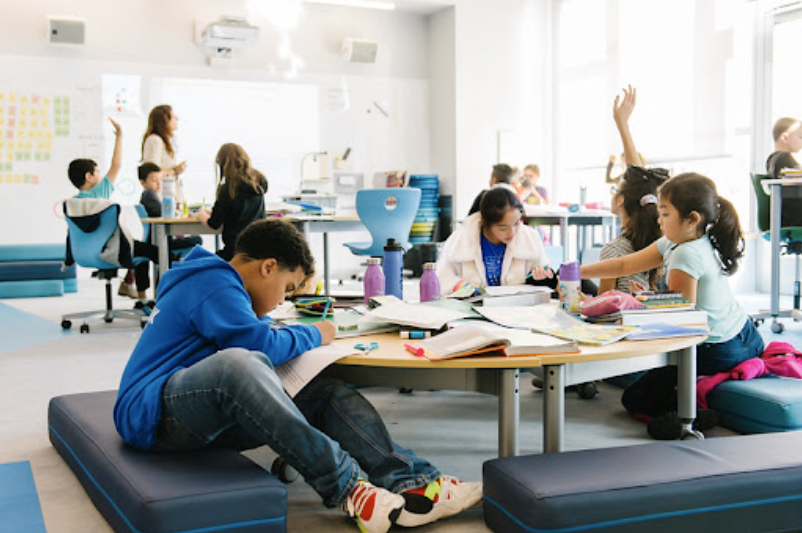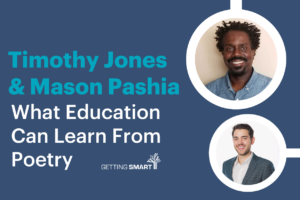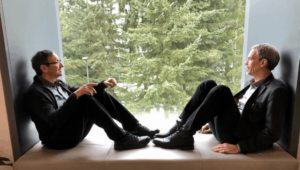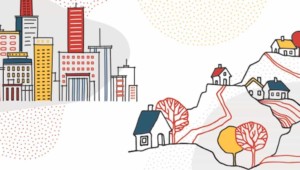The Future-Ready School: Harnessing the Power of Learning Communities in Education
Key Points
-
Eden Park Elementary has committed to creating the ideal conditions for future-ready learning.
-
In the video linked below, Principal Courtney Sevigny takes us on a tour, showing us how this strategic spatial restructuring has sparked a paradigm shift in teaching and learning.

By: Mike Posthumus
The post-COVID world presents unique challenges for education globally. With declining engagement rates, rising social-emotional learning needs, and the daunting reality of staff shortages, schools and districts worldwide are at a crossroads. However, as Eden Park Elementary School demonstrates, there may be a potent solution to these challenges – the transformative power of collaborative learning communities.
Eden Park Elementary has committed to creating the ideal conditions for future-ready learning. They’ve reshaped a wing of their school into a collaborative learning community. This new approach replaces traditional classrooms with ‘studios,’ common areas, and specialized labs for scientific experiments or design thinking. Small group rooms allow for intervention and student support services or peer-to-peer collaboration. Teachers have a dedicated workspace where they can collaborate, reflect, and recharge. The defining quality of a learning community is that there is a culture of learning, in which everyone is involved in a collective effort of understanding.
In the video linked below, Principal Courtney Sevigny takes us on a tour, showing us how this strategic spatial restructuring has sparked a paradigm shift in teaching and learning. At Eden Park, the teachers have moved away from isolated classrooms to a collective model, thinking of every student and the entire wing as ‘ours.’ This shared sense of ownership has created a more inclusive, supportive learning environment, increasing students’ feelings of belonging and high-quality learning habits.
Belonging is a critical component in learning communities. These environments cultivate interactivity and collaboration, making students feel valued and connected. This sense of community can counter the current engagement crisis, as a feeling of belonging is a crucial aspect of student engagement.
But the benefits of learning communities don’t stop there. They also foster social-emotional learning by increasing social interaction between students, adult mentors, and peers. This networked approach provides students with necessary emotional support while modeling constructive social behavior. Studies show that these relationships can enhance students’ social-emotional competencies, contributing to their overall success.
In the current climate of school, staff shortages, and frequent changes, learning communities also offer resilience and adaptability. A team of educators shares responsibility, enabling smooth transition and continuity in students’ learning experiences when a substitute teacher isn’t available or a sudden shift occurs. This collective team approach ensures that every student receives consistent support and guidance, making learning communities a model of resilience in today’s ever-evolving educational landscape.
However, it’s not just the students who benefit. Learning communities also foster a collaborative and supportive environment for educators. Teachers build stronger relationships through daily collaboration, which leads to the sharing of effective teaching practices and natural mentorship opportunities. Such an environment enhances job satisfaction and fosters professional growth, further solidifying the community’s resilience.
So, what can other schools learn from Eden Park Elementary?
Start small and try a ‘Pathfinder.’ Transforming a single classroom or introducing collaboration within a grade level can provide a testing ground for the model. Encourage a shared sense of ownership among educators. Facilitate increased interaction between students and adult mentors, and foster a learning environment that nurtures belonging.
Eden Park Elementary School offers a hopeful lens into the future of education. By embracing innovation, collaboration, and a forward-thinking mindset, they have shown us how to engage students effectively, support their emotional growth, and foster resilient educational environments.
What about your school or district? What innovations are you considering or have you implemented to address these modern educational challenges?
Whatever the challenges, we at Fielding International are ready to help you get to where you want to be. Visit us at fieldingintl.com or reach out to me at [email protected] to get started.
Mike Posthumus, a leader in education innovation since 2009, excels at transforming complex challenges into successful strategies, utilizing a human-centered design thinking approach.



0 Comments
Leave a Comment
Your email address will not be published. All fields are required.